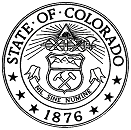![]() The information on this page is archived and provided for reference purposes only. It may be outdated or no longer maintained.
The information on this page is archived and provided for reference purposes only. It may be outdated or no longer maintained.
Colorado Supreme Court to hear NFIB business-fees case
DENVER, June 25, 2018 -- The Colorado Supreme Court granted certiorari in a lawsuit that questions whether the Colorado Legislature can continue funding elections with fees imposed on businesses.
The National Federation of Independent Business filed the suit in 2014 against then-Colorado Secretary of State Scott Gessler, arguing that the amount of fees collected when businesses file documents should only cover costs associated with regulating business operations. Using the money to cover election costs makes the fees a tax, which must be voted on under the Taxpayer's Bill of Rights or TABOR, the NFIB maintained.
Three issues have been granted review by the court:
- Whether the court of appeals erred in finding that the existence of a disputed issue of material fact precluded summary judgment.
- Whether the business and licensing exactions authorized by section 24-21-104 are fees or taxes within the contemplation of TABOR.
- Whether the business and licensing exactions authorized by section 24-21-104 are dictated by a mechanism or formula that pre-dated TABOR, as to which TABOR therefore does not apply.
In March of 2017, the Colorado Court of Appeals remanded the lawsuit. The court reversed the summary judgment of the trial court in favor of the state, and directed the Colorado Secretary of State's office to compile information about any fee increases the office implemented since the Taxpayer's Bill of Rights went into effect on Dec. 31, 1992.
Since Wayne Williams became secretary of state in 2015, business fees have either been lowered or stayed the same.
"Colorado’s business renewal fees are the nation’s lowest. I’m proud that I’ve been able to permanently lower a number of fees while still providing excellent customer service," Williams said. "Colorado’s legislature needs a declarative interpretation of fees and taxes as they set our office’s budget, so I appreciate the Supreme Court’s decision to hear these important issues."




 Menu
Menu  Search
Search 
